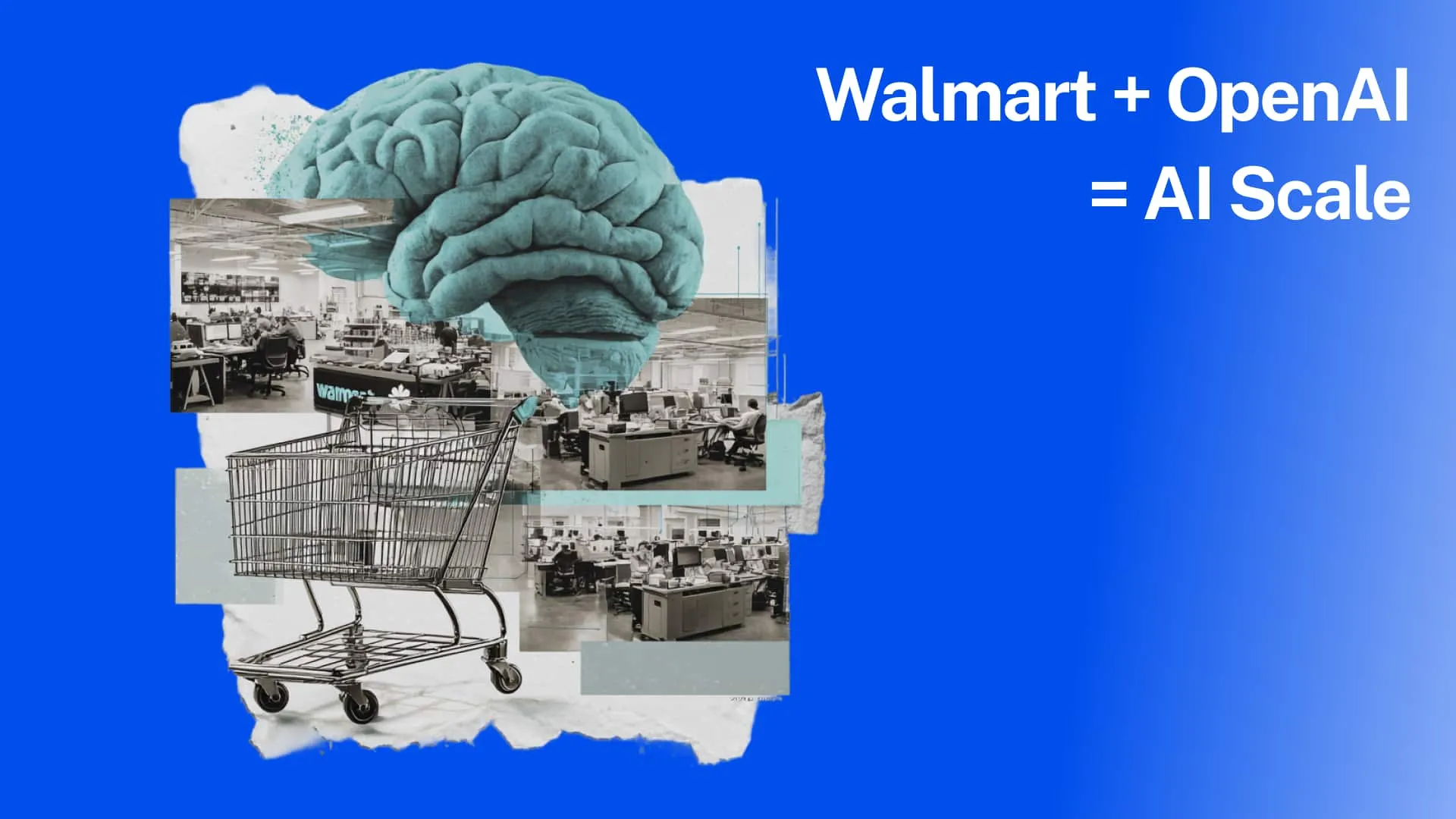

Big News: Future Work is Becoming Lead With AI for Organizations 🎉
Starting next week, Future Work will join Lead With AI with a new focus on teams and organizations. Each Friday, you’ll get stories on how companies are really putting AI to work, with fresh case studies, research, and lessons from real rollouts, plus practical resources on change management and implementation.
We’ll also share highlights from our member-only content and library, along with a curated roundup of everything your team needs to know about AI in talent recruitment, collaboration, culture, and employee experience.
We’re excited to share this next step with you and hope you’ll enjoy the change!
This week: Walmart + OpenAI = AI Training at Scale
Walmart is partnering with OpenAI to launch free AI certifications for more than 2 million U.S. associates starting in 2026, part of its billion-dollar training commitment. The program is designed to scale AI adoption across the company, strengthen Walmart’s people-first strategy, and establish certification as a trusted workplace currency. By linking skills, trust, and scale, Walmart is positioning its workforce as the foundation of its AI transformation.
Let’s get into it 👇
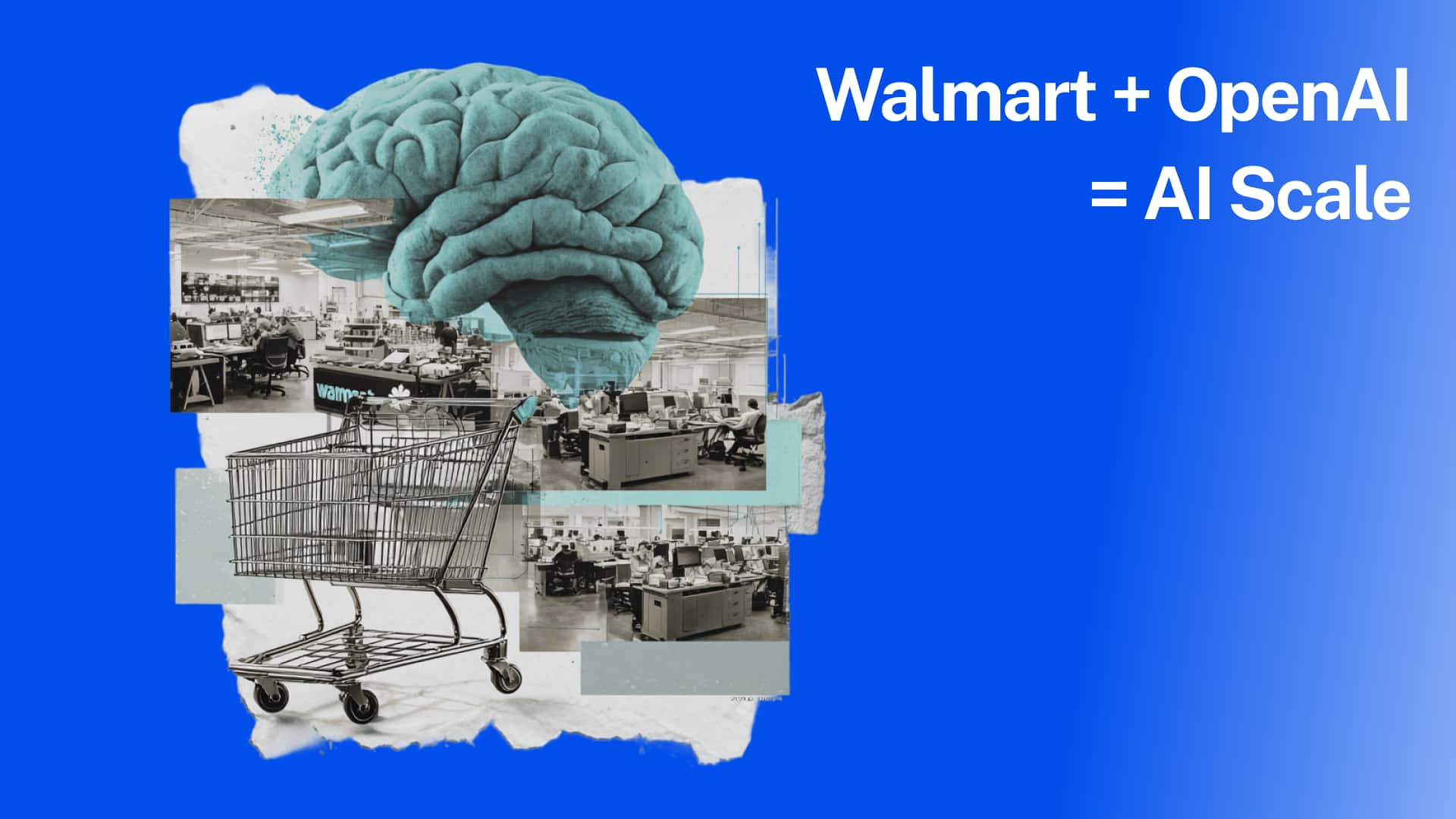
Walmart, the largest private employer in the U.S., is making one of the boldest moves yet in corporate AI adoption. In partnership with OpenAI, the retailer will begin offering free, customized AI certifications to its more than 2 million frontline and office employees in 2026.
The program is part of the company’s nearly $1 billion commitment to training through 2026 and ties directly to OpenAI’s goal of certifying 10 million Americans by 2030.
By combining AI adoption at scale, a people-first philosophy, and certification as currency, Walmart is reframing how organizations can prepare their entire workforce for an AI-powered future.
AI Transformation Only Works When It Scales Through Training
AI adoption inside organizations often begins with pilots and experiments, but Walmart is showing what it looks like to scale. Over the past year, the company has rolled out a company-wide AI framework with “super agents” that support customers, suppliers, associates, and developers. It has also launched conversational AI tools to improve internal processes. Yet executives, including CEO Doug McMillon, have acknowledged that the financial benefits have not yet appeared. “I don’t think it’s lifting our top-line sales yet…this is very early days”.
The certification program is designed to change that. By making AI literacy a measurable part of Walmart Academy, the company ensures that tools are not just deployed but used effectively. CTO Suresh Kumar captured the shift when he wrote: “When AI is no longer the domain of a few experts and it becomes a language many can speak, everything changes”.
The lesson: AI transformation only becomes real when it reaches the scale of the workforce through structured training.
Companies Prove Their Values By Investing In People
Walmart’s framing of this partnership is deliberate: it is not only a technology story, but a people story. "Because being people-led means investing in you. With these new learning opportunities, you can develop the skills to succeed and grow," wrote CPO Donna Morris. John Furner, U.S. President and CEO, added: “The future of retail won’t be defined by technology alone—it will be defined by people who know how to use it”.
This emphasis matters. AI is often introduced as an efficiency tool, a way to reduce costs or automate tasks. But Walmart’s executives are making the opposite case: AI should empower associates, help them grow careers, and strengthen customer relationships. The company has already invested nearly $1 billion in training and operates Walmart Academy, the largest private training program in the world with more than 3.5 million participants. Adding an AI certification is not replacing this foundation but extending it.
The lesson: organizations that want durable adoption must position AI as an investment in people, not a threat to them. When associates believe training will help them thrive in their jobs and lives, they engage with transformation rather than resist it.
Skills Become Currency When They Are Trusted
For both employers and employees, the credibility of AI skills is becoming critical. A Microsoft survey found that 71% of business leaders would prefer a less-experienced candidate with AI skills to a more-experienced candidate without them. Yet many upskilling programs fail because certifications do not carry weight with employers.
OpenAI is attempting to solve this with a standardized certification system, integrated into its OpenAI Academy and backed by major employers like Walmart. The company aims to certify 10 million Americans by 2030, offering levels from basic fluency to prompt engineering and custom jobs. Walmart will use a tailored version to certify frontline and office workers, embedding proof of skills directly into its workforce.
For employees, this means certifications that improve both internal mobility and external competitiveness in the job market. For Walmart, it means a more credible signal to customers, partners, and regulators that the company is equipping its people to handle advanced technology responsibly.
The lesson: treat AI certification as a new form of workplace currency. It creates trust between workers and employers, improves career mobility, and sets a clear benchmark for adoption readiness.
The Bottom Line
Walmart’s collaboration with OpenAI is more than a training initiative. It is a case study in how to turn AI disruption into organizational resilience. By embedding AI skills into the heart of its workforce, Walmart is preparing not just for efficiency gains but for long-term transformation. Walmart’s case shows that large-scale organizations can act decisively to prepare millions of workers, and in doing so, set a standard that others may follow.
For leaders in any industry, the takeaway is clear:
- Start Small but Build at Scale. Do not leave AI in a pilot bubble.
- Invest in People. Make training a strategic priority, not a side project. (And we can help!)
- Create Clear Currency. Use certification to turn skills into value both inside and outside the company.
Walmart’s roadmap suggests that the future of AI in organizations will be written not by algorithms alone, but by people with the skills and confidence to use them.
Your Friday Briefing on the Future of Work
Future Work delivers research-backed insights, expert takes, and practical prompts—helping you and your team capture what matters, build critical skills, and grow into a future-ready force.
Get all-in-one coverage of AI, leadership, middle management, upskilling, DEI, geopolitics, and more.
Unsubscribe anytime. No spam guaranteed.
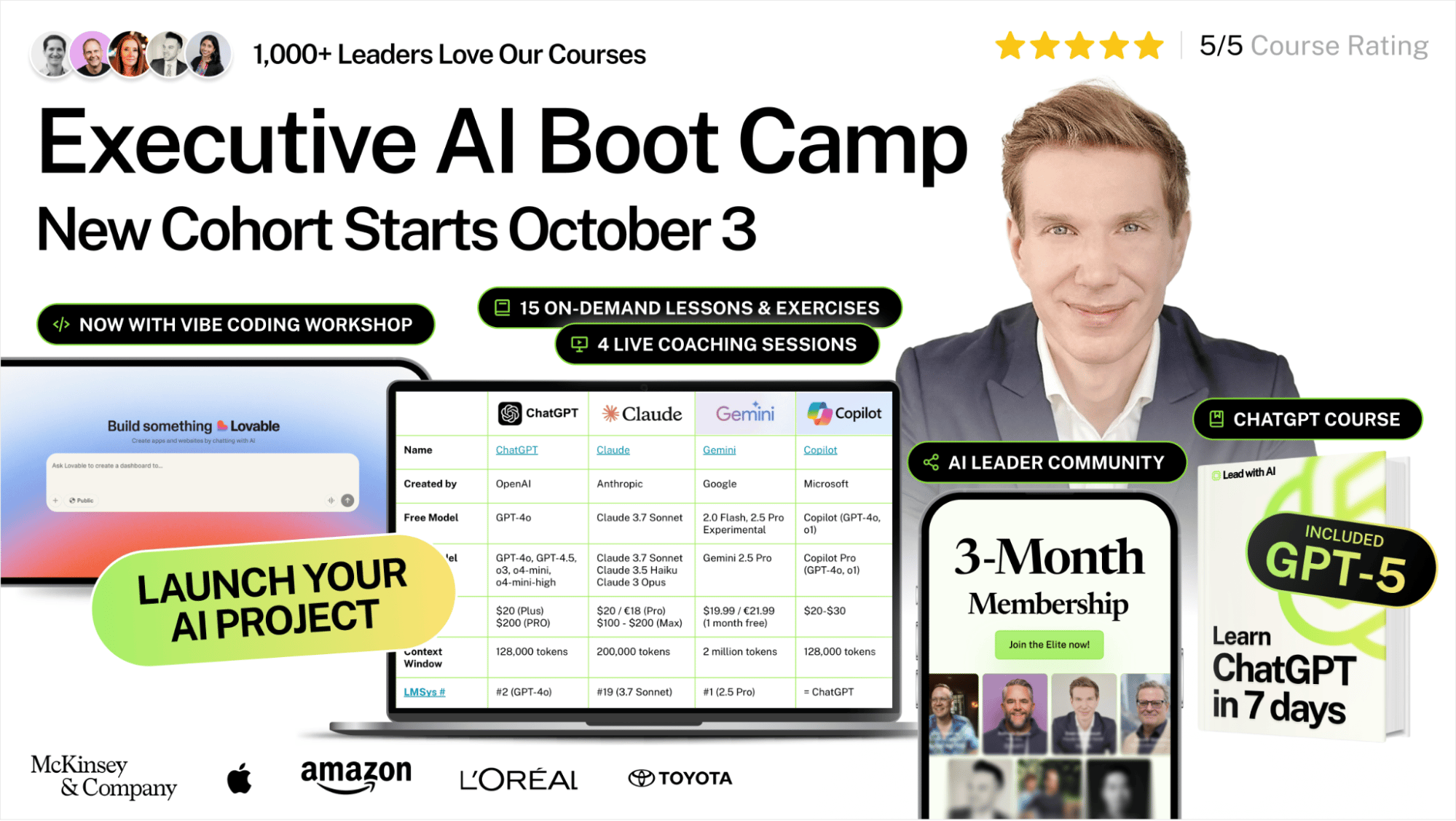
Join the Lead with AI Boot Camp: a continuously updated program that turns fresh launches into step-by-step playbooks you can use right away.
Our next cohort on October 3 features the Vibe Coding Workshop, where you’ll build a real AI micro-app in one session. It’s hands-on, guided, and immediately applicable to your role. We keep pace with what’s new: ChatGPT-5, Google’s Nano Banana Image, and more!
Why leaders choose Lead with AI
- Hours of 1:1 coaching and small-group labs to apply AI to your actual workflows.
- Build 5+ custom AI assistants tailored to your team and data.
- Learn the most current tools, cases, and guardrails, no stale slides.
- Learn alongside an intimate cohort of 20 global leaders
- Get a certificate that signals you can lead with AI.
At the end of October, you’ll walk away with live prototypes, practical frameworks, and a leader’s view of what to adopt now vs. next.
Enroll now and turn AI from theory into results you can point to.
I track what’s worth your attention—bringing you the news and updates that matter most to how we work, lead, and grow.
This week:
EXCLUSIVE: AI TRANSFORMATION

Zapier’s Shift From Adoption to Transformation
- Zapier is one of the most-discussed case studies in our community, having transformed into an AI-first organization with 90% of employees using AI daily, AI-integrated workflows across 8,000+ apps, and a 750-person, fully remote team across 40+ countries.
- CPO Brandon Sammut share how they moved from individual productivity hacks to redesigning entire workflows, unlocking 3x–10x gains.
- From customer support breakthroughs to hackathons that turned skeptics into builders, this conversation reveals the cultural, structural, and leadership moves behind one of the boldest AI transformations in tech.
🚨 This conversation is not distributed publicly. Available exclusively to Lead with AI PRO members.
👉 Register HERE (Free trial available for 2 weeks).
TALENT MANAGEMENT
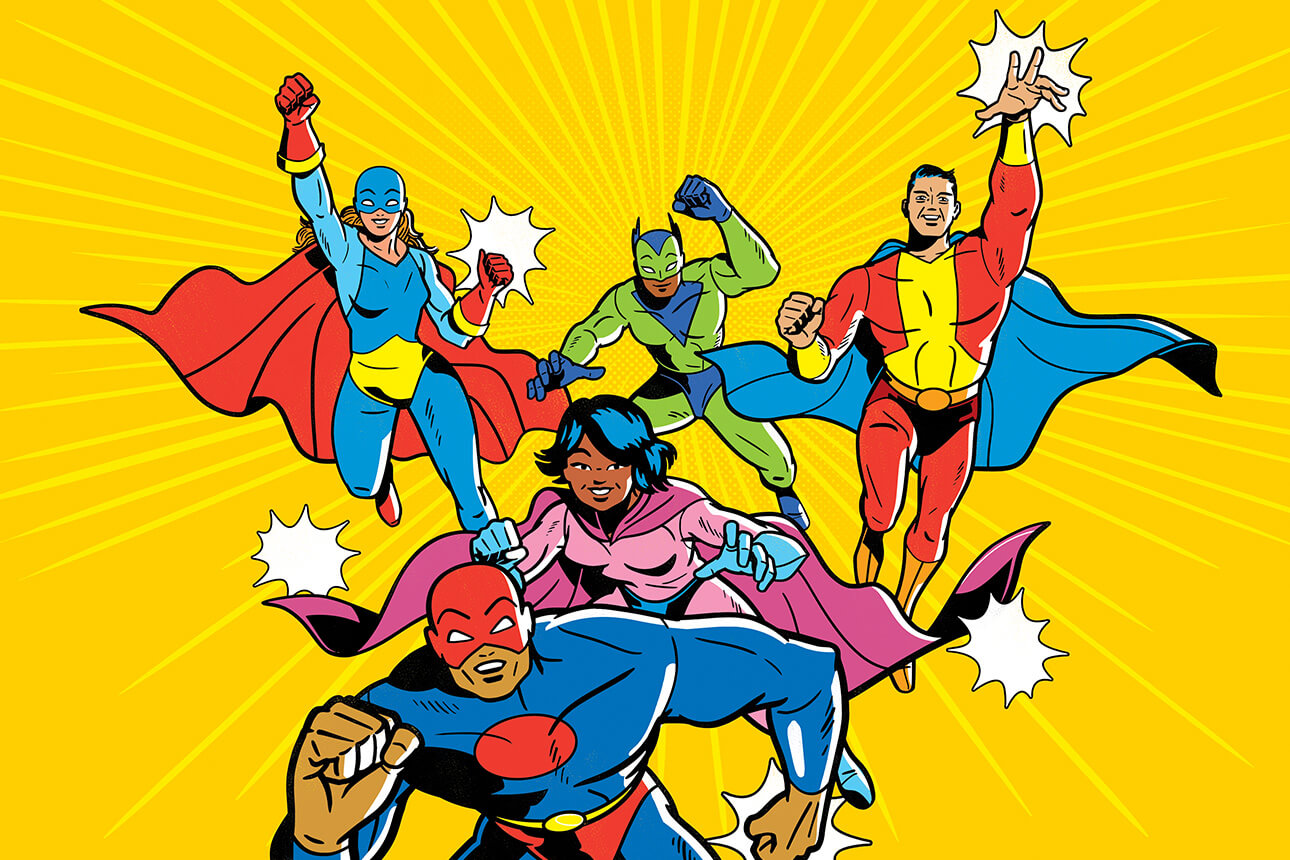
MIT Sloan: The Four Faces of Talent Leadership
- A study of 147 managers in 26 MNCs shows four talent styles: Bystanders, Protectors, Connectors, Captains—only Captains align talent to strategy.
- To build more Captains, firms should align strategy, codesign practices, communicate, embed responsibilities, and reward champions.
- Examples: Swiss pharma boosted internal mobility +35% with biweekly sessions; UK firms used dashboards and bonuses tied to talent sharing.
📝 Prompt: In your team update, highlight not just results, but how someone lived the company’s values while developing others.
CULTURE REINVENTION
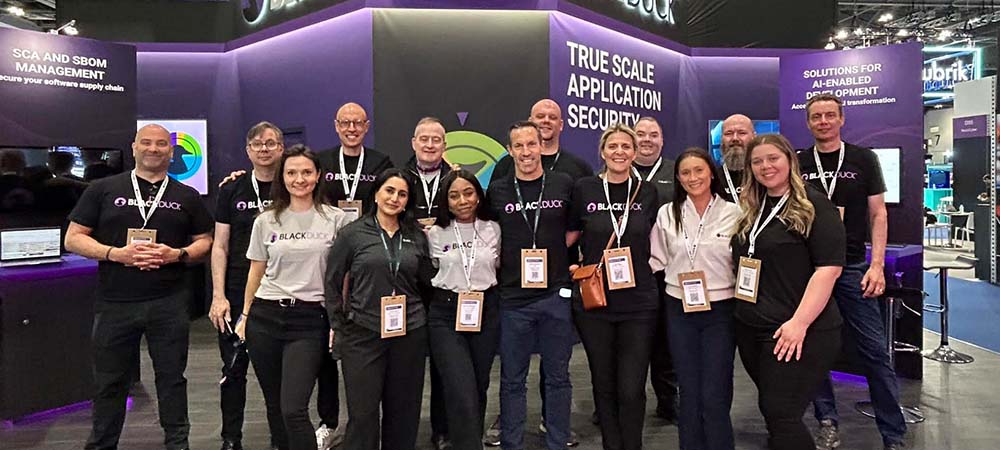
Co-Creating Culture at Black Duck
- After a $2.1B carve-out from Synopsys, Black Duck (2,000 employees) needed to quickly craft a new identity and culture.
- Employees co-created values—Be Bold, Customers First, Scale Up, Integrity—with “Say it, live it” guidelines shaping behaviors.
- Staff now feel they are part of building the company itself, reinforced by recognition plans, L&D, recruitment, and performance reviews tied to values.
📝 Prompt: Give your team ownership, ask them to shape one piece of your culture or process, then show how their input changed the outcome.
🚀 Quick Hits:
- OPENAI + MICROSOFT PEACE DEAL: After a year of tension, OpenAI and Microsoft signed a “non-binding memorandum of understanding” for the next phase of their partnership. Key sticking point: OpenAI’s plan to convert its for-profit into a shareholding company, easing fundraising and a possible IPO; Microsoft’s revenue rights remain unresolved.
- Wall Street Flags AI Psychosis Risk: Barclays analysts warn of rising “psychosis risk” as chatbots can worsen crises; OpenAI faces lawsuits after a teen suicide case. Study shows GPT-5 (82%) and Claude-4-Sonnet excel at urging medical help, while DeepSeek v3 scored worst (5%). On broader metrics, GPT-5 and Claude top at ~4.5/5, while DeepSeek ranked last for encouraging delusions.
- Oracle Cashes In on AI Cloud: Oracle’s stock jumped +36%, its biggest one-day gain in 30+ years, after announcing $455B in AI cloud contracts. OpenAI accounts for $300B over 5 years, though its revenue is far below payments due, raising sustainability questions.
Your Friday Briefing on the Future of Work
Future Work delivers research-backed insights, expert takes, and practical prompts—helping you and your team capture what matters, build critical skills, and grow into a future-ready force.
Get all-in-one coverage of AI, leadership, middle management, upskilling, DEI, geopolitics, and more.
Unsubscribe anytime. No spam guaranteed.

